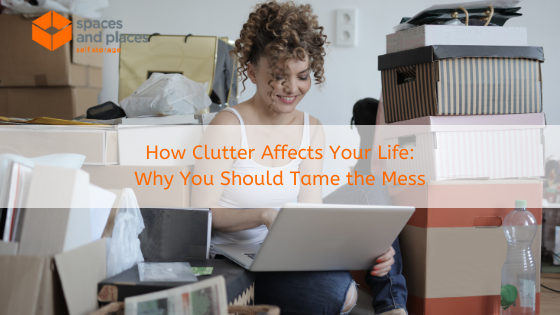There is a reason why “a place for everything and everything in its place” is such a common saying. Clutter can affect your life in many ways, from negatively impacting your health to keeping you from finding items you need.
In this blog post, we will discuss 10 specific reasons how clutter affects our lives – and what you can do about it!
Clutter can damage your health and lead to:-
Stress
Clutter is thought to cause feelings of stress and uncertainty. When you are surrounded by clutter, it can be difficult to know where to start since there is so much stuff everywhere. It’s hard for your brain to process what needs attention first when everything seems like a priority!
In addition, the more cluttered an environment becomes the higher levels of cortisol we produce. Cortisol is the hormone that our body releases when we are stressed and anxious, which can lead to feelings of depression or anxiety.
If you notice that your clutter levels have been steadily increasing over time, it might be worth taking some steps to declutter and reduce stress in your life!
Overeating
It has been known that people overeat to compensate for the feeling of being overwhelmed by clutter. If this becomes a constant habit, it can lead to obesity and other health risks.
If you are constantly overloaded with clutter or spend a lot of time organising your home, consider taking up some hobbies which include exercises such as yoga or long walks.
Respiratory problems
A cluttered home can also lead to respiratory problems. The dust and allergens that are created in the process of being surrounded by clutter cannot escape if you do not clean your house often, which in turn increases the number of pollutants inhaled. This leads to a worsening of many different allergies or asthma symptoms.
Clutter Can Harm Your Personal Life
Clutter prevents people from seeing the changes that are needed to build and strengthen their relationships with others. If you aren’t living together, it is difficult to notice when things are getting out of hand.
Studies have also shown that people with cluttered homes tend to be more stressed and depression can arise because they cannot find a way out of the mess. It becomes overwhelming and causes many issues in one’s life.
Children who live in a cluttered home are less happy and less likely to have friends over to play.
Adults also isolate themselves more due to the embarrassment of their surroundings.
Hire a Professional to Help Deal with the Clutter
As we mentioned before, clutter has a negative impact on your life. It affects both how you feel and what you do in your day-to-day routine.
The best way to get rid of this clutter is by hiring professional storage providers like our self storage units in Nuneaton!
We have the perfect solutions for anyone looking for secure self storage or commercial property space. Give our team a call today or contact them online if you’re ready to find out more about getting started with us as soon as possible!

